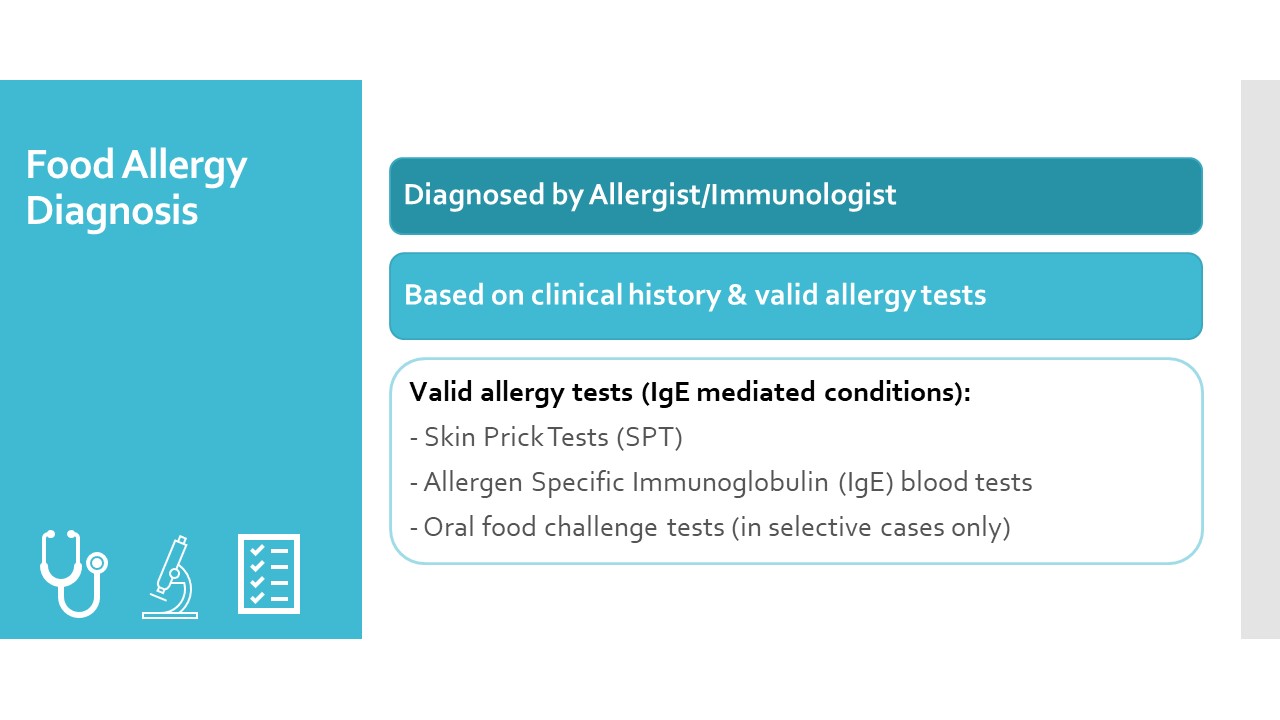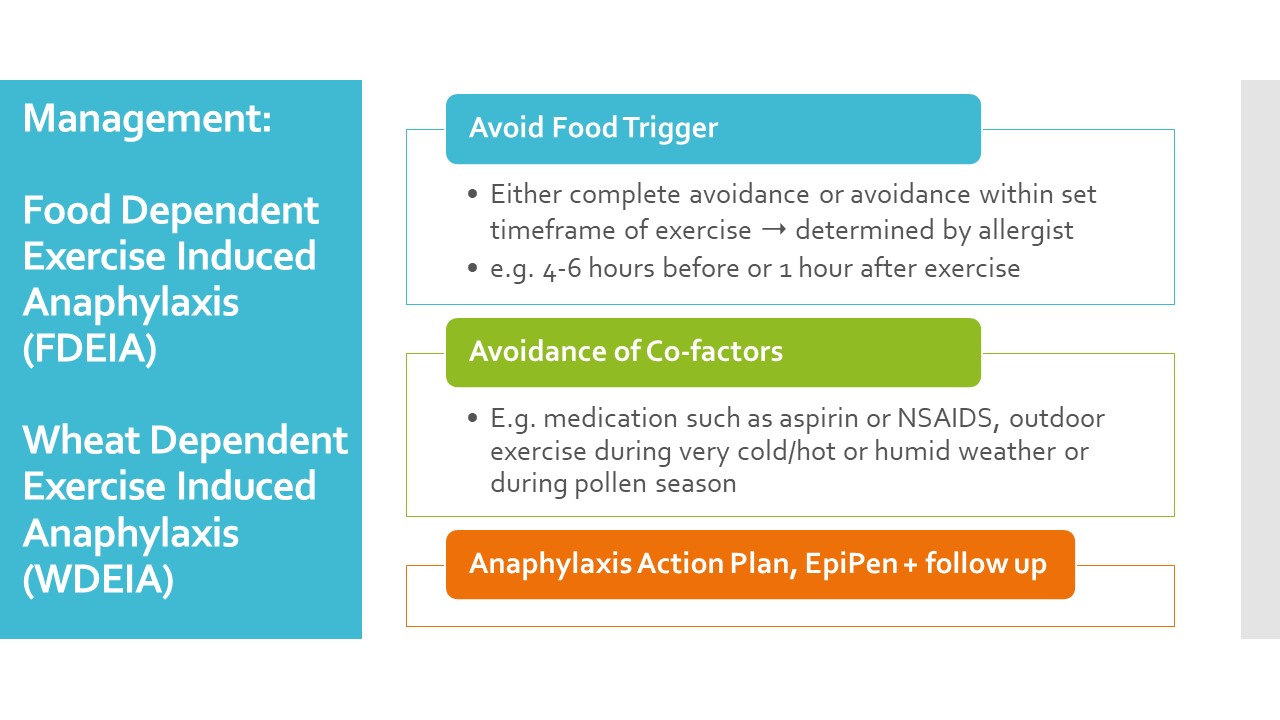Food allergy in adults. 2 Part series. Presented by Amanda Jackson, APD
Dietitians are commonly the first point of contact for adults with an undiagnosed food allergy. Amanda emphasises that we need the skills to be able to recognise food allergies in adults and be part of the team which helps manage them.
In Part 1 Amanda provides a general overview of food allergy in adults. Food allergy occurs in 2-4% of the adult population (this includes both allergies which have continued from childhood, as well as new allergies diagnosed in adulthood). The most common food allergies in adults are shellfish, fish, treenuts and peanuts. Amanda reminds us of the cascade of reactions which arise when an allergic response occurs (following exposure to an allergen T cells and then B cells are activated causing a production of IgE antibodies…) and importantly clarifies that in our management we need to ensure all our clients with a food allergy have an allergy action plan. It is surprising how frequently this is neglected.
Food allergies are diagnosed with skin prick tests, allergen specific IgE blood tests or oral food challenge. Unorthodox allergy testing eg. VEGA testing, IgG4 food testing, Kinesiology, stool and hair analysis are often expensive and have no place in diagnosing food allergy (or intolerances).
Future treatment considerations are described which have shown some promising results but are yet to enter routine clinical practice.
In Part 2 Amanda summarises five specific conditions linked with adult food allergy:
- Food Dependent Exercise Induced Anaphylaxis (FDEIA)
- Wheat Dependent Exercise Induced Anaphylaxis (WDEIA)
- Pollen Food Allergy Syndrome (Oral Allergy Syndrome)
- Tick-induced Mammalian Meat Allergy
- Eosinophilic Oesophagitis (EOE) in adults
She describes the dietitian’s role in management in each of these, including the importance of an accurate diet history, the detail involved in providing client education around allergen avoidance and providing advice for a nutritionally adequate diet.
Amanda outlines the challenges faced by food allergic adults:
- Diagnosis and the possibility of disease denial
- Tolerance and the role of co-factors
- Diet management: the risk of accidental exposure, and achieving nutritional adequacy
- Adherence to health advice
- The necessity of lifestyle restrictions and the common experience of anxiety which may require psychological support
If you or your clients are looking for further education and support Amanda provides a resource list of reputable organisations:
Allergy and anaphylaxis Australia
Food Standards Australia and New Zealand
Amanda Jackson has over 12 years’ experience in managing adult food allergy, intolerances, immune disorders, gastrointestinal conditions and kidney disease. She is the senior dietitian with the Clinical Immunology and Allergy Department at the Royal Melbourne Hospital and has a private clinic at Melbourne Allergy Asthma and Immunology Consultants.
To register for the presentation and associated documents including the assessment quiz

